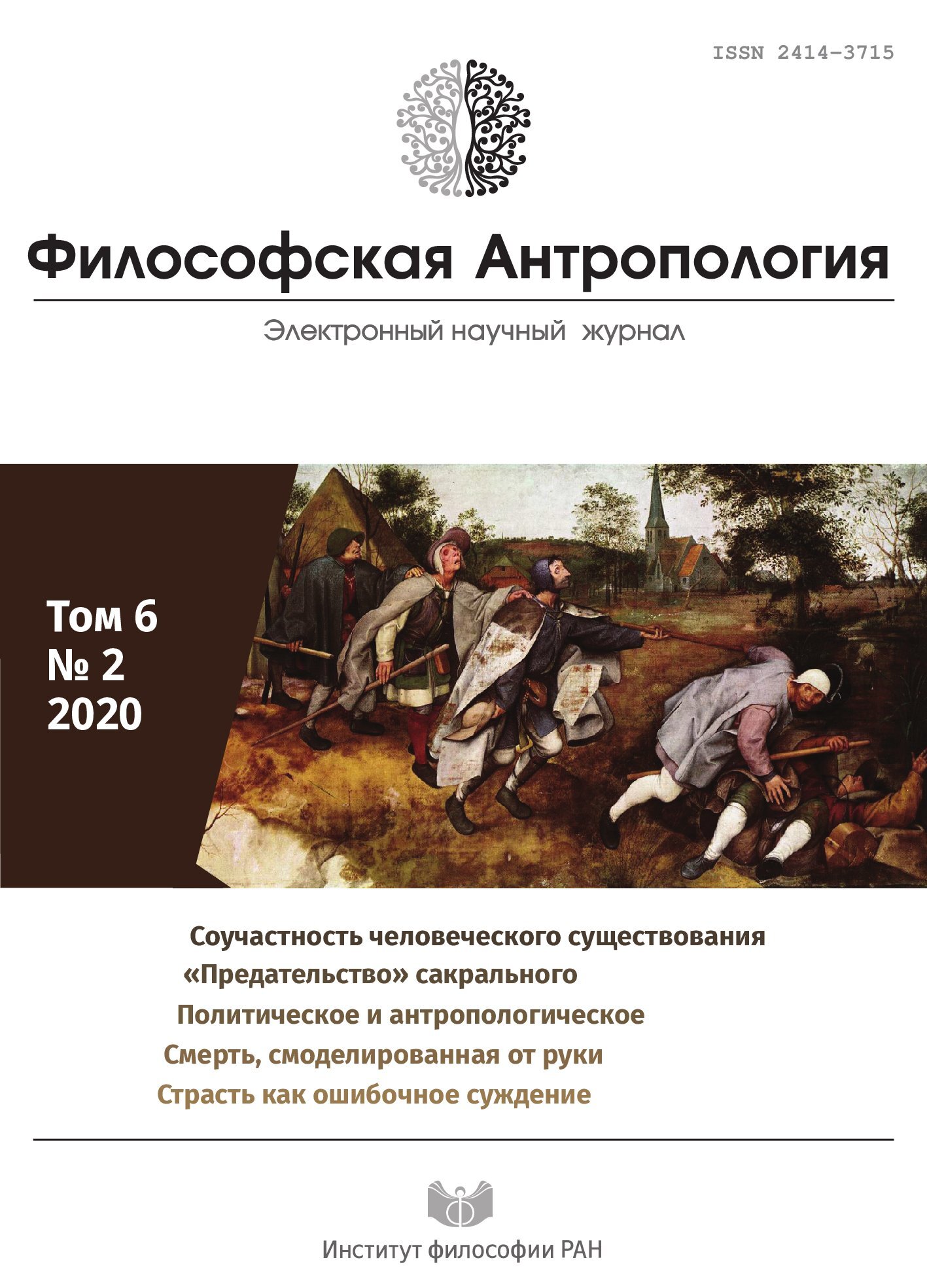Death as an Aesthetic Experiment
DOI:
https://doi.org/10.21146/2414-3715-2020-6-2-88-104Keywords:
philosophy of death, anthropology of death, discourses of death, death and dying, disqualification of death, humanization of death, symbolization of death, fear of death, death as an art projectAbstract
The more intensely a person thinks about the final nature of life, the more he is bound to a moment in life that is limited in time. Death is a very personal and intimate process, which in most cases is not «beautiful». The reality of death in clinics, intensive care units and operating theatres is, by its human nature, cruel. The body at the «end of the road» is captured by funeral homes. Thus, death today is identical to a long path of suffering.
The article is dedicated to the author's reflection on a project by the German artist Gregor Schneider, which caused sensation and fierce reaction in Western art circles and beyond the art scene, creating him a reputation as «the most terrible contemporary artist» who has violated «existing» restrictions that cannot be exceeded if we do not want to question our civilization. The artist's vision is to allow a terminally ill person to die as part of an art project that represents a confrontation with death and that can remove the horror of death.
As part of the project, the dying person defines everything in advance. Instead of a mass medical procedure of the same type, death, modeled on the artist's skill, Schneider argues, will create humane places for death and contribute to the creation of a space where people can die with dignity, creating personal protection and ensuring the ethical requirement of free will and self-determination.

